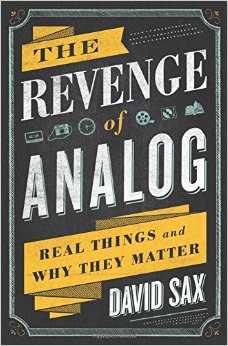
If Silicon Valley had its way, all humans would have abandoned analog products by now. We’d be consuming music from the cloud (instead of on tapes or discs), reading stories online (instead of in books) and sketching notes and designs on battery-powered devices (instead of in notepads). And indeed, many of us do.
And yet, apparently, we’ve also started an analog revolution. Sales of objects like vinyl records, paper notebooks and even board games have consistently grown over the past decade, as has their cultural relevance. Meanwhile, big brands in e-commerce, including Warby Parker and Amazon, are rushing to open the very brick-and-mortar stores they promised to supplant.
What’s driving this switch? Many assume it’s nostalgia, led by the wistful romance of aging Luddites. But in fact, many of analog’s newest fans are millennials drawn to its raw utility—the designer who uses a Moleskine notebook, for example, to sketch out a website’s early look.
Opting for less-modern technology might seem to make no sense. But remember that humans aren’t machines, tasked with delivering the most logical solution at all times. We are complex creatures, driven by emotions beyond our comprehension. And at its core, the human experience remains a deeply, truly analog one, no matter how many virtual platforms we embrace.
More Must-Reads from TIME
- Donald Trump Is TIME's 2024 Person of the Year
- Why We Chose Trump as Person of the Year
- Is Intermittent Fasting Good or Bad for You?
- The 100 Must-Read Books of 2024
- The 20 Best Christmas TV Episodes
- Column: If Optimism Feels Ridiculous Now, Try Hope
- The Future of Climate Action Is Trade Policy
- Merle Bombardieri Is Helping People Make the Baby Decision
Contact us at letters@time.com